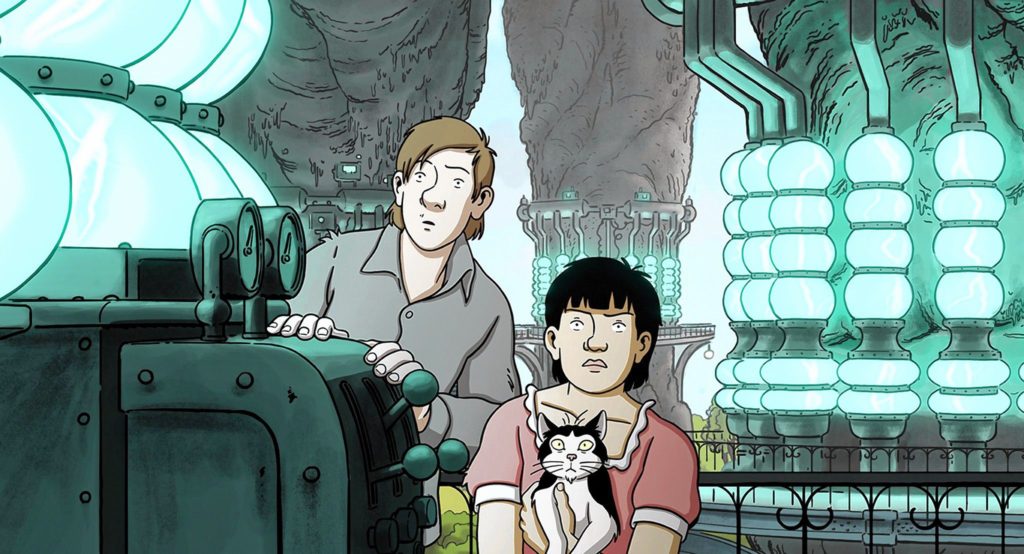Ask people what they like in art, and you might think that all they want is “the real world” mirrored back at them. We hail the Old Masters — their mastery of light and shadow, their ability to make hard marble seem like supple skin. But where would we story lovers be without alternate worlds?
In a world sometimes overly concerned with making art seem “real,” it’s always a pleasure to find oneself happily lost in another place, and to come out of it with a better understanding of our own place and time. Star Wars, Harry Potter, and The Hunger Games — just to name a few of the hit series that have reimagined reality — all owe at least part of their success to their knack for making their settings feel both different and familiar at the same time. I may never visit Mos Eisley, but I don’t think I’ve picked up a flashlight in the last three decades without imagining, however briefly, the sound of a lightsaber.
This week, a few alternate realities come to area screens, bringing stories that are about us without featuring us; stories that reflect us without holding up a true mirror. They are stories of what could be or might have been, stories that start out seeming fun — what could go wrong in a place called Wonderland? — but somehow grow darker the older we get.
At Amherst Cinema, the French film April and the Extraordinary World is playing in both English and dubbed versions (check the schedule for showtimes). Christian Desmares and Franck Ekinci’s sci-fi adventure sprouts from the work of graphic novelist Jacques Tardi, and is brought to the screen with the help of the producing team behind the Oscar-nominated Persepolis. In it, our world took a turn in the late 19th century, when Napoleon III’s secret supersoldier program blew up, both figuratively and literally. In the aftermath, scientific advancement has slowed to a crawl in many ways — wars are mounted over the forests still used for fuel, and promising scientists disappear with alarming frequency, never to be heard from again — while in a few others it has grown by leaps and bounds: the companion of April (voiced by Academy Award winner Marion Cotillard) is a talking cat named Darwin, and her scientist family is about to perfect a longevity serum when they are mysteriously abducted. April — a young girl at the time — grows up to carry on the family work, and eventually embarks on a quest to discover the fate of her missing parents.
In Cinemark Theaters in Hadley and the Springfield area, two films offer up a different reality, one far more curious than the other. First up is X-Men: Apocalypse, the latest in the long-running franchise that follows a group of misfit mutants as they team up to fight prejudice, hormones, and each other in a bid to make the world a safe place for mutant and non-mutant alike. This ninth film in the series has the team facing off against an ancient enemy named Apocalypse (Oscar Isaac, lately of Star Wars: The Force Awakens), whose name is also his plan for the future. Tapping into the sense of betrayal felt by many mutants, this Apocalypse rounds up four new Horsemen and starts planning to kill the rest of us. Jennifer Lawrence and Michael Fassbender co-star.
Also at Cinemark is Alice Through the Looking Glass, directed by James Bobin (Muppets Most Wanted) and starring Johnny Depp and Anne Hathaway. This is the follow up to Tim Burton’s 2010 film Alice in Wonderland, and Depp reprises his role as the Mad Hatter — his depression in the new film draws Alice (Mia Wasikowska) back into the topsy-turvy world of Wonderland. I’ll be honest with you: the early reviews of this Alice paint a less-than-stellar picture (and the first one wasn’t so hot, either). But as other worlds go, Carroll’s Wonderland has always set a standard; for me, seeing another take on it is always worth the chance.
Jack Brown can be reached at cinemadope@gmail.com.



